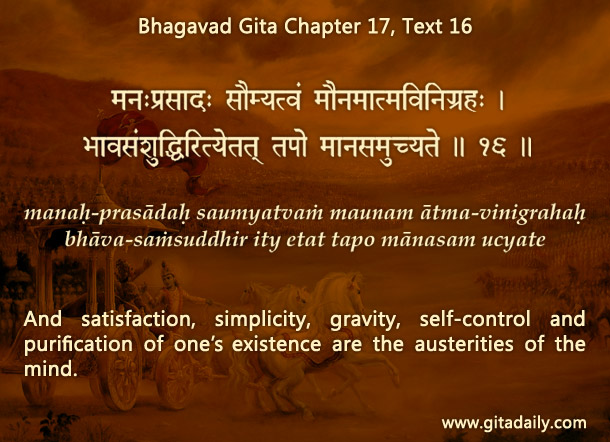Why is it so difficult to feel grateful? – If asked specifically to list things we are grateful for, we all can easily list several things. Yet during our daily life, we don’t so easily feel grateful. Why is that? Because our physical bodies are geared for survival, not for fostering gratitude. Let’s understand how.
Our world is danger-filled, and our bodies are fragile. To survive in such a vulnerable situation, we need to be alert to the things that are wrong or may go wrong. Consequently, our bodily senses naturally gravitate toward things that seem to be threats. Other things, especially things that are right, slip out of our sensory radars — they might as well be invisible.
Does this mean gratitude is an unnatural emotion? Not exactly; it may be unnatural for our bodies, but not for us. We are spiritual beings whose identity extends beyond our biology. In our present human bodies, we have an evolved consciousness that seeks more than just survival; it seeks meaning, purpose and fulfillment. As an integral part of our higher human consciousness, we have the potential to experience refined emotions such as gratitude.
To cultivate gratitude, we need to consciously subordinate the body’s default tendency to look for what is wrong and strive to look for what is right. We need to bring into visibility the things that would otherwise remain as if invisible to our senses. Such an exercise involves redirecting not just our vision but also our attention — it is an austerity of the mind (Bhagavad-gita 17.16). The more we perform this austerity, the more we relish sublime emotions such as contentment and gratitude. Over time, gratitude will come more easily to us, till it becomes our default disposition, keeping our heart enriched through life’s trials.
One-sentence summary:
To cultivate gratitude, consciously bring into visibility the things which the survival-driven body relegates to invisibility: things that are right.
Think it over:
- How is our body not geared for fostering gratitude?
- Is gratitude an unnatural emotion for us? Explain.
- For cultivating gratitude, what do we need to do?
***
17.16: And satisfaction, simplicity, gravity, self-control and purification of one’s existence are the austerities of the mind.


Gratitude is the gift of GOD
Good point – gratitude for the gifts of God, is also a gift of God
These daily readings are a balm for my soul and so helpful in my daily struggles to turn toward Krishna and spirituality and away from material sense gratification and ego gratification. I thank you from the bottom of my heart. God bless you and Hare Krishna! Haribol.
Thanks, Denny, for your good wishes and prayers – humbled and grateful to know that Gita-daily is of service to you.
Grateful for such enlivening articles with lucid explanations. I remembered one of your statements “We may NOT be grateful for all situations but we can be grateful IN all situations”..
Thanks for your comment and that relevant point; happy to be of service.